The 2016 Hugos: Short Fiction Ballot Thoughts
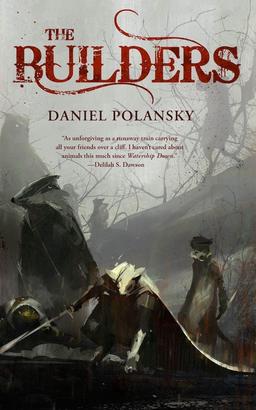 Here are my compiled thoughts (as promised) on the stories nominated in the short fiction categories for the 2016 Hugo.
Here are my compiled thoughts (as promised) on the stories nominated in the short fiction categories for the 2016 Hugo.
(Versions of these posts appeared earlier on my blog, Strange at Ecbatan.)
A quick word on my voting philosophy: I am not planning to reflexively rank Rabid Puppy entries below No Award. I am of course disgusted by the Rabid Puppy antics, and I feel that many more worthy stories were kept off the ballot by the Rabid choices. And if a story is bad enough, it will certainly be off my ballot, with No Award the last choice. (That’s always been my approach.)
But, this year in particular, many of the nominees supported by the Rabid Puppies were either unaware of that, or aware and quite clearly not happy with that. Also, I don’t want to reduce the meaningfulness of the win for those worthy winners – if they finish first and No Award is second, to my mind it to some extent delegitimizes their wins, through no fault of their own. Better to have been chosen the best with everyone voting on merit than voted best simply because all the other choices were automatically rejected regardless of quality.
I’m going to comment only on the short fiction. In the other categories, I mostly don’t know enough about the nominees. All the novels look worth reading, but I doubt I’ll finish them all by the deadline.
I have seen four of the movies, and two of them I think are excellent, in very different ways. These are The Martian and Mad Max: Fury Road. I still need to see Ex Machina. I thought The Force Awakens and Age of Ultron were both OK, but not much better than that.
[Click on any of the images for bigger versions.]
Novella
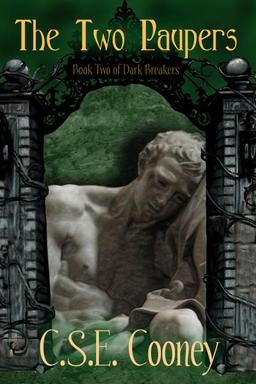 The 2016 Hugo nominees for Best Novella are:
The 2016 Hugo nominees for Best Novella are:
Binti by Nnedi Okorafor (Tor.com)
The Builders by Daniel Polansky (Tor.com)
Penric’s Demon by Lois McMaster Bujold (Spectrum)
Perfect State by Brandon Sanderson (Dragonsteel Entertainment)
Slow Bullets by Alastair Reynolds (Tachyon)
I’ll go ahead and show my nomination ballot:
The Two Paupers, by C. S. E. Cooney (Fairchild Press)
“Gypsy,” by Carter Scholz (Gypsy Plus …, F&SF)
“The Four Thousand, the Eight Hundred,” by Greg Egan (Asimov’s)
“The Bone Swans of Amandale,” by C. S. E. Cooney (Bone Swans)
“The Boatman’s Cure,” by Sonya Taaffe (Ghost Signs)
With these four also contenders:
Wylding Hall, by Elizabeth Hand (Open Road/PS Publishing)
Penric’s Demon, by Lois McMaster Bujold (Penric’s Demon)
Teaching the Dog to Read, by Jonathan Carroll (Subterranean)
Sunset Mantle, by Alter S. Reiss (Tor)
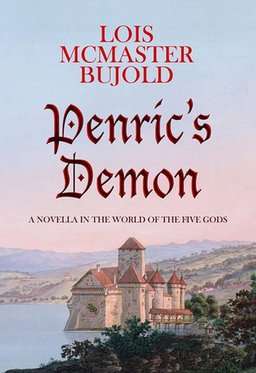 So you can see that none of my personal nominations made the ballot. Three of my choices were somewhat obscurely published, so I wasn’t surprised that they didn’t make the cut (these are the Cooney stories, and the Taaffe story (which may be a long novelette anyway)).
So you can see that none of my personal nominations made the ballot. Three of my choices were somewhat obscurely published, so I wasn’t surprised that they didn’t make the cut (these are the Cooney stories, and the Taaffe story (which may be a long novelette anyway)).
By all means seek them out to read! I was quite bothered that the Scholz and Egan stories, two of the very best hard SF stories of the last few years, and both published top magazines, didn’t get a nod.
Oh well, that’s enough about my choices. It does give you a hint as what will come first on my ballot, though!
1. Penric’s Demon, by Lois McMaster Bujold
Here’s what I wrote in the November Locus:
It’s set in her Chalion universe (or, more properly, The World of Five Gods). Penric is a pleasant young man, the younger son of a not terribly prosperous noble family, whose life is turned upside down when, while helping a woman stricken on the way, he unwittingly agrees to take on her demon. This marks him as tied to the fifth god, the Bastard, and it’s also potentially a very dangerous thing. The rest of the story is about Penric learning the nature of demons, his in particular (he names her “Desdemona,” cleverly enough), and learning to navigate the dangers posed not just by his possession, but by the jealousies and fears of those around him, particularly those in his new Order. The depiction of demons (which remind me a little bit of the (science-fictional) Aspects in Gregory Benford’s Galactic Center future) is pretty neat, and Desdemona is an interesting character (or characters). Nice story, though not spectacular, but I’d be glad to see more of Penric and Desdemona.
So you can see that I liked the story, but wasn’t over the moon about it. Still, best of this list, though I will say it’s pretty close over the next couple stories.
2. Slow Bullets, by Alastair Reynolds
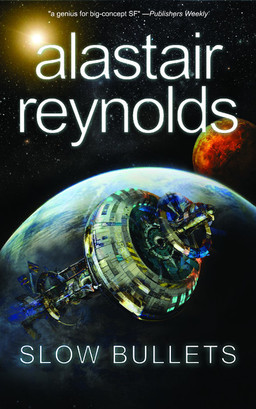 I also wrote about this in the November Locus:
I also wrote about this in the November Locus:
Pure SF, told by Scur, a veteran of a sectarian war that seems to have engulfed human space. After the ceasefire, and an encounter with a vicious enemy soldier who tortures her leaves her for dead, she ends up on a prison ship with a number of war criminals. But when she wakes, with the bulk her fellow passengers, and the ship’s crew, they realize that something has gone terribly wrong – they seem to have reached the right planet, but centuries late, and the planet seems unrecognizable. Also, her enemy is also on board. The story blends a couple of mysteries – why is Scur on the ship? What happened to it, and what happened to human civilization? – with a tale of revenge and possible redemption. Parts of it stretched my suspension of disbelief, and at times it drags a bit, but the ending is moving and there are some neat revelations.
Again, I wasn’t over the moon about it, but it’s got some pretty good and powerful ideas.
3. The Builders, by Daniel Polansky
I just read this story. It’s a caper story of sorts, following the usual structure: the leader of a gang assembles all the varied members, sometimes reluctantly. Then the plot is set in motion, and the caper is executed.
The first twist in this story is that all the characters are animals: the leader, called the Captain, is a mouse; and there’s a rat, a badger, a snake, an owl, a stoat, an opossum, and a salamander. The plan is to try again something they had tried years ago, which we come to realize is a political coup of sorts. We also realize that they were betrayed the last time by one of their own … All these plot details aren’t so much the point, though – the story is all style, offhand black humor, anthropomorphic descriptions of the characters, cutting dialogue. And, eventually, lots of violence.
This is pretty fun, I have to say. It’s not really that interesting from an SF or Fantasy point of view, and it’s really not all that deep (and doesn’t want to be). Fun, though.
4. Binti, by Nnedi Okorafor
Binti won the Nebula for Best Novella, which may make it the frontrunner for the Hugo. But I have to say I found it disappointing.
It tells of Binti, a mathematical prodigy from the Himba people (a Namibian group), who gets a scholarship to go to University on another planet in what seems a Galactic culture with multiple alien races. This first part is kind of interesting, as Binti meets a number of other, more privileged, students, starts to make friends, and we start to understand her culture.
But that’s not the story Okorafor is telling – because suddenly aliens attack and kill everyone but Binti. Binti is important, perhaps, because she carries an ancient artifact that helps her communicate with the aliens (jellyfish like creatures called Meduse). The aliens, without her permission, modify her so that she can better understand and communicate with them, and they use her to help them recover a significant artifact that was stolen from them and housed at the University to which Binti is going.
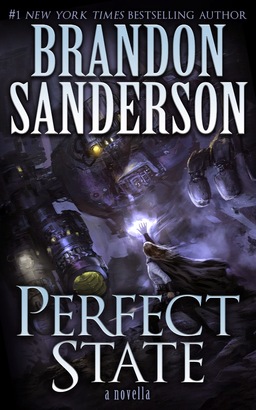 I was put off by the wild jumps in the story, by the implausible and too often magic tech, by the lack of apparent consequence or concern about the atrocities committed by the Meduse, and by some slack prose. Against that I should point out that it has more exotic ideas than any of the other stories, and appears to be trying to engage “deeper” issues – just not, to my mind, quite successfully.
I was put off by the wild jumps in the story, by the implausible and too often magic tech, by the lack of apparent consequence or concern about the atrocities committed by the Meduse, and by some slack prose. Against that I should point out that it has more exotic ideas than any of the other stories, and appears to be trying to engage “deeper” issues – just not, to my mind, quite successfully.
5. Perfect State, by Brandon Sanderson
Perfect State concerns Kaironimas, who is God-Emperor of his own little domain. He has conquered his world after three hundred years, and is providing for his people pretty well, and he’s getting kind of bored. There is the problem of Melhi, ruler of another world, with robots, who wants to fight him … and then there’s the summons he has received, from the Wode – he needs to find a mate an contribute his DNA to create another “Liveborn.” And we realize that he’s really a “brain in a jar” – and he knows it. He’s been given his own virtual reality, to make of what he will, with limited contact with other domains. Everyone else in his world is a simulation. And he must go to a Border State and meet a woman and …
And so he does, and she’s intriguing, and very different from him, and a bit cynical, and he starts to fall for her. Well, there’s a twist of course, and it involves his unwanted enemy, Melhi, as well as the nature of these virtual lives. And it’s really not bad, coming to a real if slightly trite resolution. None of the ideas here are terribly original, but this story is pretty well done in that context. A fine story, not a brilliant one.
So there you have it. No story I would have nominated for a Hugo myself, but also no truly bad stories. So I won’t leave any of these off my ballot. Indeed, while this isn’t a great Novella shortlist, it’s really not too different, in overall quality, from many previous shortlists. I just regret the significantly better stories – in what was a very good year at the very top of the novella list – that didn’t get nominated.
I’ll note something else: all 5 of these stories were published as standalone novellas, either slim books or ebooks. So too were many of the other stories I recommended, such as The Two Paupers, Wylding Hall, Teaching the Dog to Read, and Sunset Mantle. This seems unusual, but it does seem to reflect the state of novella publishing these days.
Novelette
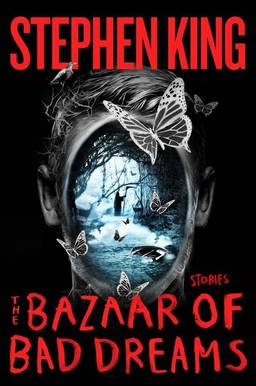 The 2016 Hugo nominees for Best Novelette are:
The 2016 Hugo nominees for Best Novelette are:
“And You Shall Know Her by the Trail of Dead” by Brooke Bolander (Lightspeed, Feb 2015)
“Flashpoint: Titan” by Cheah Kai Wai (There Will Be War Volume X, Castalia House)
“Folding Beijing” by Hao Jingfang, trans. Ken Liu (Uncanny Magazine, Jan-Feb 2015)
“Obits” by Stephen King (The Bazaar of Bad Dreams, Scribner)
“What Price Humanity?” by David VanDyke (There Will Be War Volume X, Castalia House)
I’ll go ahead and show my nomination longlist (I think I ended up nominating the first 5 on this list but really I don’t think there was much separation top to bottom, and I may have switched a couple):
“Twelve and Tag” by Gregory Norman Bossert (Asimov’s)
“Acres of Perhaps” by Will Ludwigsen (Asimov’s)
“The Long Goodnight of Violet Wild” by Catherynne M. Valente (Clarkesworld)
“Botanica Veneris: Thirteen Papercuts by Ida Countess Rathagan” by Ian McDonald (Old Venus)
“Endless Forms Most Beautiful” by Alvaro Zinos-Amaro (Analog)
“The Heart’s Filthy Lesson” by Elizabeth Bear (Old Venus)
“This Evening’s Performance” by Genevieve Valentine (The Mammoth Book of Dieselpunk)
“And You Shall Know Her by the Trail of Dead” by Brooke Bolander (Lightspeed)
“Folding Beijing” by Hao Jingfang (Uncanny)
“My Last Bringback” by John Barnes (Meeting Infinity)
“The Deepwater Bride” by Tamysn Muir (F&SF)
Thus, two stories among my nomination candidates made the ballot, which is actually not unusual.

Oh well, that’s enough about my choices. It does give you a hint as what will come first on my ballot, though! Except that I’m not sure — I could easily flip the first two spots.
1. “Folding Beijing,” by Hao Jingfang (translated by Ken Liu)
Here’s what I wrote about “Folding Beijing” in the March 2015 Locus:
The conceit here is that Beijing has been literally folded into three separate parts, that each get part of each day. The division is unequal, in a very explicitly class-based fashion, and the story opens in Third Space, with Lao Dao, a waste inspector, as he plans an illegal trip to First Space to deliver a love letter from a man in Second Space to a woman there. The idea itself if fascinating and nicely depicted, and the social differences between the three Spaces are well described and only too believable, and the characters, Lao Dao in particular, are also well done.
So, to my mind a very original concept (perhaps recalling Philip Jose Farmer’s Dayworld to a degree, as well as numerous stories with Dayside/Nightside divisions), used effectively to deal with class differences.
(I should add a note about the translator: Ken Liu of course is a first-rate writer (and a Nebula, Hugo, and World Fantasy Award winner), but his contributions as a translator, in introducing excellent Chinese-language SF to the English-speaking world, are also very praiseworthy. (He also translated last year’s Hugo winning novel, The Three Body Problem, by Cixin Liu (no relation).)
2. “And You Shall Know Her by the Trail of Dead,” by Brooke Bolander
Here’s what I wrote in the April 2015 Locus:
Rhye is an android of some sort, made to be a killer, and after leaving the army she has been rescued by another android, Rack, a gentle man who is a computer expert. The two seem a traditional team: brains and muscle, as it were, but as the story opens Rack has gotten into trouble. A mobster has killed him for not finding his son quickly enough. Said son’s brain had been uploaded, and Rack had followed him there. Now Rack’s body is dead, and Rhye is forced to upload after him, to look for the mobster’s son with the dangled reward of at least retrieving Rack’s brain. This is neat stuff in itself, and the story of Rhye’s journey in the virtual world is well-executed, with a perfect twisty ending (perfect in that I saw the right answer in advance, but in a way that seemed earned, not cheap or gimmicky). Best though is the manner of telling: Rhye’s voice, profane and vulnerable and very darkly funny. (By the way, Bolander swears in an author profile that she had never heard of the drink “Rack and Rye” before naming her characters – I had assumed the names were on purpose, either way, it works.)
This is excellent action SF, with a pretty solid SFnal premise behind it.
3. “Obits,” by Stephen King
This is about a guy who wants to be a journalist, but at the wrong time, i.e. now, with papers shedding employees (and cash) and online place paying peanuts. He ends up writing a nasty satirical obituary column for a TMZ-like website, for peanuts of course. When he asks for a raise and his boss brushes him off he gets mad and to vent, writes an obituary for her. When she suddenly dies he gets scared, then a bit tempted – what if he tries writing an obituary for someone really evil? Well, you can see where this is going, and it goes there, with no real twists (and, as King makes sure to tell us, no real resolution). This is decent stuff, and King is an engaging writer, for sure, but this isn’t really brilliant. It’s not King at his best, it’s not particularly original – I just don’t see it as Hugo material.
4. “Flashpoint Titan,” by Cheah Kai Wai
This is set onboard an experimental Japanese warship in the Saturn system. Ships start acting suspiciously, and it becomes clear that a sneak Chinese attack on the American colony on Titan is in the offing. The commander of the new Japanese ship offers to help, but he is constrained both by rules of engagement – until the Chinese are proven to act hostilely, his hands are tied – and also by a need to keep the experimental weapons on board his ship secret. What follows is bog standard mil-SF, and decent enough stuff, but nowhere surprising, nowhere a cut above any other particular story.
5. “What Price Humanity?,” by David VanDyke
This opens with a long infodump setting up the situation: the Solar System has been engaged in a long war against the alien Meme (a really bad name choice these days), constantly throwing them back only to face another wave. Must humanity “use inhumane means” to fight this war?
Then we switch to the POV of Captain Vincent Markis, in a strange situation which quickly suggests to him a virtual reality setup to keep his brain going while his body is regenerated. The VR setup gets more complex, and soon Markis meets others in it – all fellow veterans. Soon they are doing wargames … Again, it’s easy enough to see where this is going. It’s competent mil-SF – it’s not a bad story – but it doesn’t stand out either.
So – two stories that I’d be happy see win the Hugo, and three stories that, while readable enough, certainly publishable, are not at all distinguished. Not the first time that’s happened, no doubt, but still regrettable.
Short Story
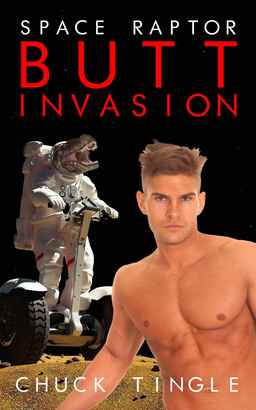 The 2016 Hugo nominees for Best Short Story are:
The 2016 Hugo nominees for Best Short Story are:
“Asymmetrical Warfare” by S. R. Algernon (Nature, Mar 2015)
“Cat Pictures Please” by Naomi Kritzer (Clarkesworld, January 2015)
“If You Were an Award, My Love” by Juan Tabo and S. Harris (voxday.blogspot.com, Jun 2015)
“Seven Kill Tiger” by Charles Shao (There Will Be War Volume X, Castalia House)
“Space Raptor Butt Invasion” by Chuck Tingle (Amazon Digital Services)
I’ll go ahead and show my nomination longlist (I think I ended up nominating the first 5 on this list but I may well have switched in or out a couple of the others):
“Mutability” by Ray Nayler (Asimov’s)
“Capitalism in the 22nd Century” by Geoff Ryman (Stories for Chip)
“The Game of Smash and Recovery” by Kelly Link (Strange Horizons)
“The Astrakhan, the Homburg, and the Red, Red Coal” by Chaz Brenchley (Lightspeed)
“Hello Hello” by Seanan McGuire (Future Visions)
“Consolation” by John Kessel (Twelve Tomorrows)
“The Daughters of John Demetrius” by Joe Pitkin (Analog)
“Unearthly Landscape by a Lady” by Rebecca Campbell (Beneath Ceaseless Skies)
“The Karen Joy Fowler Book Club” by Nike Sulway (Lightspeed)
“Little Sisters” by Vonda M. McIntyre (Book View Cafe)
“Asymptotic” by Andy Dudak (Clarkesworld)
“Cat Pictures Please” by Naomi Kritzer (Clarkesworld)
“Today I Am Paul” by Martin Shoemaker (Clarkesworld)
“Drones” by Simon Ings (Meeting Infinity)
“The Graphology of Hemorrhage” by Yoon Ha Lee (Operation Arcana)
“Please Undo This Hurt” by Seth Dickinson (Tor.com)
“The King in the Cathedral” by Rich Larson (Beneath Ceaseless Skies)
“Time Bomb Time” by C.C. Finlay (Lightspeed)
So, only one story from this long list of stories I considered made the ballot – less than I might have hoped. But easily explained – this is clearly the category Vox Day chose to make a mockery of. His nomination choices in the longer fiction categories (Novel, Novella, Novelette), were actually all readable stories, and some quite plausible Hugo nominees. That’s not at all the case in Short Story. And, indeed, the only good story on the list was only added after one of the original nominees withdrew.
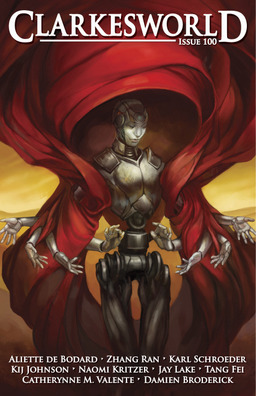
So, my ballot:
1. “Cat Pictures, Please,” by Naomi Kritzer
Here’s what I wrote about “Cat Pictures, Please” in the March 2015 Locus:
I really like a very funny short story by Naomi Kritzer, “Cat Pictures, Please,” about an emergent AI that decides it has to do good for people, though it must be paid, in cat pictures of course. The three cases it takes on are interesting themselves, and the AI’s reactions are priceless – I laughed aloud in public.
So, a funny story on the short list – that’s one valid complaint, I think, about the Hugos – there is a tendency to perhaps undervalue humor, or overvalue deadly seriousness (I’m sure I’m guilty myself), and it’s nice to see humor getting some notice. As with most good comedy, there’s some food for thought behind this story as well.
I’m torn about the next two stories. They are at least real SF, and of professional quality. But they’re a long way below my view of Hugo standards, more so than the least of the novelettes. I may end up moving my No Award vote to second. But maybe not …
2. “Asymmetrical Warfare,” by S. N. Algernon
This is part of Nature’s long-running series of short-shorts. It’s about aliens invading Earth, in the hopes of raising up a new predator species. The starfish-shaped aliens can’t believe the bipedal humans are the real intelligence, though … leading to rather asymmetrical misunderstanding. It’s amusing enough, not remotely Hugo-worthy, but a decent work in its short space.
3. “Seven Kill Tiger,” by Charles Shao
A Chinese executive is having a hard time meeting production goals in an African project. He blames the locals (described in quite racist terms, though to be fair this is presented as the views of a villain), and, in danger of losing his job, he authorizes a project for a race-specific plague, to wipe out the Africans and allow Chinese to immigrate. An American official for the CDC (or some similar organization) starts to track down the reports of a mysterious disease in Africa, but … Well, it’s a didactic story, and as such it doesn’t really have a story structure, instead choosing to make its point. The racial politics – indeed the politics in general – are dodgy as well. (To say the least – as noted, the depiction of Africans is overtly racist (but from the POV of an evil character), and the depiction of the Chinese struck me as racist as well, verging on a contemporary version of Yellow Peril clichés.) The story does manage to scare, that’s fair to say…
4. No Award
The remaining two stories are downright awful. The less objectionable of them is “Space Raptor Butt Invasion,” by Chuck Tingle. It’s gotten Tingle some good press, because he’s been a pretty good sport about the whole thing*, and because his politics don’t seem to align with Vox Day’s. I fear that some people are tempted to vote for the story because they think it will annoy Day. It won’t – if it won, Day would be thrilled.
The story itself is straightforward gay porn – I won’t evaluate it on those terms, though I must say it didn’t seem anything special. It’s SFnal veneer has an astronaut coming to a Moonbase to tend it for a while solo, and meeting an intelligent dinosaur, from a parallel universe. Soon they get down to business … As SF, it’s a joke (not a funny one), and it certainly isn’t remotely in the universe of stories that deserve a Hugo.
Even worse is “If You Were an Award, My Love,” a juvenile and rather vile, and very clumsy and unfunny, parody of Rachel Swirsky’s “If You Were a Dinosaur, My Love.” The story itself is bad enough, the comments section of the blog post in which it even appeared even worse.
*Though a better sport would have had his fun and then withdrawn.
Rich Horton’s last review for us was Gordon R. Dickson’s 1960 Ace Double The Genetic General/Time to Teleport. His website is Strange at Ecbatan
Glad to see similar thoughts on both Builders and Binti – I felt both were overrated for the same reasons you did. Binti infuriated me. It started very interesting, but boy did everyone behave in nonsensical ways – you could feel the writer’s hand making the characters do certain things to just fit how she wanted it to end. I didn’t finish The Builders. It was…fine, I guess, but not interesting enough as an homage to much better western novels and films, and not…hmmm…Moorcock enough to pull off well written pulp that holds my interest. Maybe I’m wrong on that one, and I’ll give it another chance later.
Yes, very well put about what’s wrong with “Binti”. “The Builders” is what it is, good enough fun, but never really special (especially from an SF/Fantasy point of view). I mean, I’d have bought it for my novella line, if I had one … I just wouldn’t have considered it a likely Hugo nominee.
I liked Binti better than you two, but I was generally happy with all five selections.
Having said that, Wylding Hall was on my short list and would’ve taken my top spot, and I’m going to be upset if it turns out that it missed being included on the ballot due to shenanigans.
Good analysis, Rich, I was very disappointed by the nominees, when there were better stories elsewhere. One example is novella I really liked was “Botanica Veneris: Thirteen Papercuts by Ida Countess Rathagan” by Ian McDonald (Old Venus).
My problem with The Builders was that is didn’t end so much as just stop. I think it could have been better if Polansky had a complete story to tell, instead of just what seemed to me as the build-up to one.